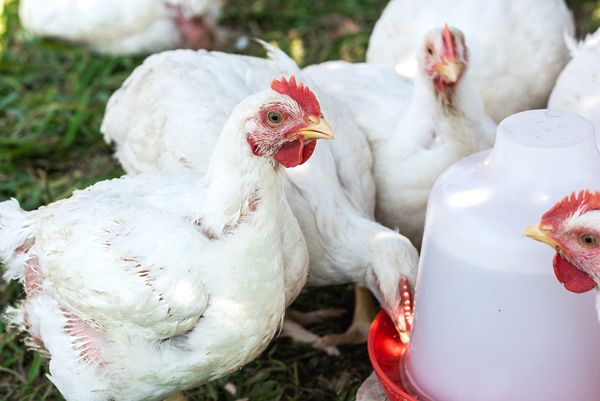According to farmers, the Nigerian poultry business is suffering due to record prices for maize and soybeans, which is leading to a significant loss of jobs.
Two essential ingredients used in the creation of chicken diets are soybeans and maize.
According to a TNC market survey, the price of a metric tonne of maize increased by 89.6 percent in just one year, from N480,000 in 2023 to N910,000 today.
In the same vein, the price of a metric tonne of soybeans has increased by 68 percent to N714,000 from N425,000 at the same period in 2023.
The low productivity of maize and soybeans brought on by climate change and insecurity is the reason for their high prices. The result of the high operating costs and low purchasing power of consumers is a decrease in the number of individuals working in the poultry industry.
Nigeria, the continent’s second-biggest producer of maize, is currently experiencing a severe shortage of the crop.
Experts believe that the nation’s food security and poultry enterprises are seriously threatened by the ongoing price increases for the two essential components of chicken feeds.
The Poultry Association of Nigeria (PAN) president, Sunday Ezeobiora, told reporters that the country’s growing insecurity has caused a 50% decline in maize output in just a single year, with an estimated 7 million metric tonnes (MT) now produced.
He pointed out that, to meet farmer demand, the chicken business alone requires more than four million metric tonnes of maize yearly.
According to Ezeobiora, the industry’s value has decreased by 45%, from N10 trillion in 2022 to roughly N5.5 trillion at present, as a result of the record prices for maize and soybeans.
He went on to say that numerous farms are in danger of going out of business due to factors like avian influenza, supply chain interruptions, rising feed costs, falling demand for eggs, and faster inflation.
To allow farmers to return to their fields and produce enough corn for the entire nation, he urged the federal government to solve the issue of insecurity.
PAN claims that because of the industry’s ongoing problems, 25 million jobs were destroyed in just four years.
According to data from the National Bureau of Statistics (NBS), the growth of the poultry sector decreased by 23.29 percent in the first quarter (Q1) of 2024 compared to a contraction of 30.57 percent in the same period of 2023.
Experts claim that the industry’s difficult circumstances are reflected in the successive contraction.
Onallo Akpan, a poultry farmer in Abuja, stated that as inflation reduces people’s purchasing power and makes many of them cut back on purchases, the market for eggs and chicken goods has continued to decline.
“From exchange volatility to the high cost of feeds, to supply chain disruption, to smuggling and the current low consumer demand induced by accelerating inflation and naira scarcity, it has been a chain of problems for the poultry industry since 2020,” said Akpa, who is also the head of PAN.
“Lots of farms are closing down as a result of these challenges,” he added, stressing that the government’s recent initiative to import maize to lower prices is insufficient to sustain the business due to a variety of challenges farmers face.
Experts claim that of the agricultural subsectors in Nigeria, the poultry industry is responsible for the greatest number of employment creation.
According to the News Chronicles, the price of a kilogramme of frozen chicken has increased to N5,000 from N3,600 sold the previous year, and the price of an egg crate has decreased to N5,500 from N2,600 sold in January.
According to Ahmed Popoola, director of the F.A. Popoola Farm Project, farmers’ output costs have risen since President Bola Ahmed Tinubu removed the fuel subsidy.
Popoola observed, “Monthly, the prices of feeds, vaccines, drugs, and everything we need for our poultry farm keep increasing.”
Ibrahim Kabiru, the president of the All Farmers Association of Nigeria, stated that he was operating at a loss last year and had to close one of his poultry farms in the North owing to crippling challenges afflicting the poultry business.
His circumstances are comparable to those that millions of chicken farmers nationwide are going through right now.
Buying eggs and chicken is becoming more and more difficult for many Nigerians due to the ongoing price increases of poultry goods.
This is endangering the nation’s protein intake as well as the government’s push for children to eat one egg per day. Despite being a primary source of protein, eggs are currently out of reach for the poor, particularly for those with modest incomes.
The projected daily protein consumption per person in the country is 45.4g, which is lower than the minimum recommended by the Food and Agriculture Organisation (FAO) of 53.8g.
According to farmers, as a result of the ongoing price increases, many Nigerian households are currently unable to afford eggs, which will cause the country’s protein intake gap to grow and the number of malnourished people to climb.



